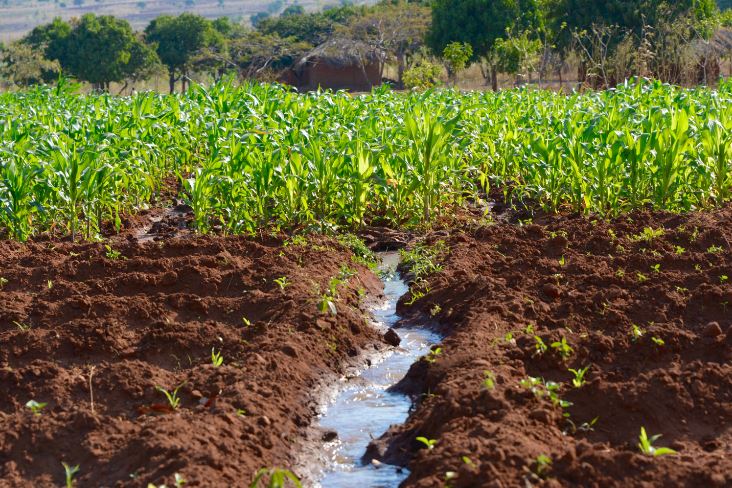By Martha Chikoti
Peter Chilunje, a smallholder farmer in central Malawi, grows maize, the national staple. Each time there is a drought, his family only has enough food to last them until the next harvest. “In drought years, the maize we produce sometimes lasts us less than five months and that is scary for my family,” said Chilunje, from Nkhoma village, 60 kilometres south of the capital city, Lilongwe.
Across Malawi farmers like Chilunje are getting poor harvests because of El Nino-induced droughts and floods. In 2019, the country suffered a major drought and was hit by Cyclone Idai, which left 150 people dead and 6.5 million displaced in Malawi, Mozambique and Zimbabwe.

The Malawian economy is based on agriculture, with 80 percent of the population earning income from farming. When disaster strikes during the growing season, many families lose their crops and face starvation.
After Chilunje learnt about conservation agriculture, he has tripled his crop yields. He switched to early maturing and drought-tolerant maize seed. In the 2018/9 season Chilunje harvested six (50kg) bags of maize and in the current season he got 1.8 tonnes. Conservation agriculture is a set of practises which include intercropping maize with other crops and keeping crop residues on the soil after harvest to enhance soil fertility, save moisture and prevent erosion.
To mitigate the impact of climate change, the government – through the Ministry of Natural Resources, Energy and Mining – is promoting conservation agriculture approaches, including growing drought-tolerant crops such as cassava, groundnuts and soybean under the National Resilience Strategy (NRS) launched in 2018.
The Ministry of Agriculture Irrigation and Water Development is teaching farmers better farming methods. Non-governmental organisations are providing farmers with drought-tolerant seeds, small loans and farm equipment. Building the resilience of farmers against climate shocks is one of the objectives of the National Resilience Strategy which has prioritised agriculture investment to increase productivity and food diversity.
The strategy is being localised in Balaka district, in partnership with the Department of Disaster Management, supported by the AFRICAP Programme funded by the Global Challenges Research Fund. The Programme is being implemented by the Civil Society Agriculture Network (CISANET) in Malawi.
